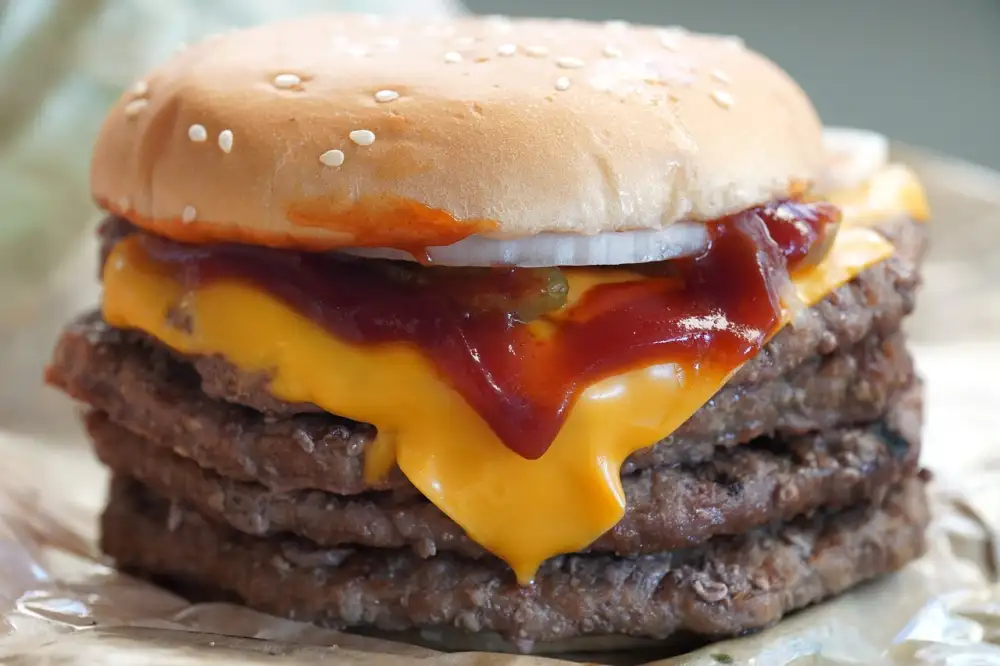Burger King Closures Shake Up the Fast Food Landscape: Find Out Which Stores Are Shutting Down

Burger King, one of the most iconic fast food chains in the world, has recently been facing a wave of store closures. These closures have sent shockwaves through the fast food landscape, leaving customers and industry experts wondering about the future of this beloved brand. In this article, we will delve into the reasons behind Burger King's store closures and explore the impact of COVID-19 on its operations. Join us as we uncover the challenges faced by Burger King and discuss potential strategies to overcome this crisis.
Impact of COVID-19 on Burger King
The COVID-19 pandemic has had a significant impact on Burger King, as it has on many businesses in the fast food industry. The widespread closures and restrictions imposed to curb the spread of the virus have led to a sharp decline in foot traffic and sales for Burger King and other fast food chains. With people staying at home and opting for home-cooked meals, the demand for fast food has decreased drastically. This has resulted in a major blow to Burger King's revenue and profitability. The company has been forced to make tough decisions, including store closures, in order to cut costs and stay afloat during these challenging times.
Reasons behind Burger King's Store Closures
There are several reasons behind Burger King's store closures. Firstly, the COVID-19 pandemic has had a significant impact on the fast food industry as a whole. With lockdowns and social distancing measures in place, many consumers have shifted towards cooking at home or ordering delivery from restaurants. This decrease in foot traffic has led to a decline in sales for Burger King and other fast food chains.
Additionally, Burger King has faced increased competition from other fast food giants such as McDonald's and Wendy's. These competitors have been able to adapt more quickly to changing consumer preferences and offer more diverse menu options. As a result, Burger King has struggled to retain its customer base and maintain profitability.
Furthermore, the rise of healthier eating trends has also played a role in the closure of some Burger King stores. Many consumers are now seeking out options that are lower in calories, fat, and sodium. While Burger King has made efforts to introduce healthier menu items, they have not been as successful as their competitors in attracting health-conscious customers.
Lastly, some of the store closures can be attributed to poor location choices. In certain areas where there is low demand or intense competition from other restaurants, it becomes financially unsustainable for Burger King to continue operating.
Overall, these factors combined have contributed to the closure of several Burger King stores. The company now faces the challenge of reevaluating its strategies and finding innovative ways to stay relevant in an ever-changing fast food landscape.
Financial Challenges Faced by Burger King
Burger King has faced significant financial challenges amidst the COVID-19 pandemic. The closure of stores has resulted in a decline in revenue and profitability for the fast food giant. With reduced foot traffic and consumer spending, Burger King has struggled to generate enough sales to cover operating costs. Additionally, increased competition from other fast food chains has put further pressure on their financial performance. These challenges have forced Burger King to reassess its business model and find innovative ways to cut costs and improve efficiency.
Strategies to Overcome the Store Closure Crisis
To overcome the store closure crisis, Burger King is implementing several strategies. Firstly, the company is focusing on enhancing its delivery and takeout services to cater to changing consumer preferences. By partnering with third-party delivery platforms and optimizing their online ordering systems, Burger King aims to reach customers who prefer the convenience of home delivery.
Additionally, Burger King is exploring new market opportunities by expanding its presence in international markets where there is still room for growth. This includes targeting emerging economies with a rising middle class that seeks affordable fast food options.
Furthermore, Burger King is investing in technology and innovation to improve operational efficiency and reduce costs. By implementing automated systems and streamlining processes, the company can maximize productivity while minimizing expenses.
Lastly, Burger King is actively engaging with its loyal customer base through marketing campaigns and promotions. By offering attractive deals and incentives, the company hopes to entice customers back to their stores and regain lost revenue.
Through these strategic initiatives, Burger King aims to navigate through the store closure crisis and emerge stronger in a post-pandemic world.
Future Outlook for Burger King
Despite the challenges faced by Burger King, the fast-food giant remains optimistic about its future. The company is actively working on implementing strategies to adapt to the changing market conditions and regain its position in the industry.
Burger King is focusing on enhancing its digital presence and investing in technology to improve customer experience. The company plans to expand its delivery services and online ordering platforms, making it more convenient for customers to enjoy their favorite burgers from the comfort of their homes.
Additionally, Burger King is exploring new menu options to cater to evolving consumer preferences. The company aims to introduce healthier choices and plant-based alternatives, aligning with the growing demand for sustainable and nutritious food options.
Furthermore, Burger King is committed to strengthening its brand image through marketing campaigns that highlight its commitment to quality ingredients and fresh food. By emphasizing its farm-to-table approach, Burger King aims to attract health-conscious consumers who prioritize freshness and sustainability.
While it may take time for Burger King to fully recover from the store closure crisis, the company's proactive measures indicate a promising future. With a focus on innovation, customer satisfaction, and adapting to market trends, Burger King aims to regain its position as a leading player in the fast-food industry.
In conclusion, despite facing significant challenges due to COVID-19 and store closures, Burger King remains determined in navigating through these difficult times. By embracing technology, diversifying menu options, and strengthening their brand image, Burger King is positioning itself for success in an ever-changing market landscape.
In conclusion, Burger King's store closures are a clear indication of the need for fast food chains to adapt to changing market conditions. The COVID-19 pandemic has presented unprecedented challenges, forcing businesses to reassess their strategies and operations. Burger King must recognize the importance of agility and innovation in order to thrive in this evolving landscape. By embracing new technologies, enhancing delivery services, and focusing on customer preferences for healthier options, Burger King can position itself for success in the future. It is crucial for the company to stay attuned to consumer demands and remain flexible in its approach. Only by adapting to these changing market conditions can Burger King overcome its current challenges and regain its position as a leading fast food chain.
Published: 16. 01. 2024
Category: Home



